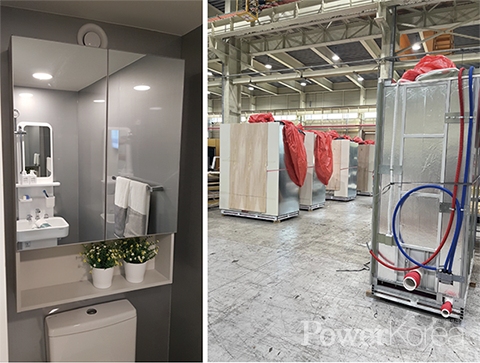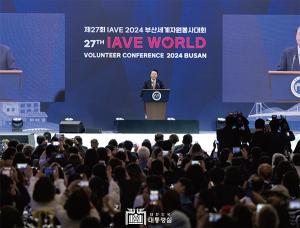 |
||
Modular construction is a building method in which some or all of a building is fabricated in a factory and simply assembled on site. This method has the major advantages of relatively accurate estimates, less material waste, higher recycling rates, and less noise and dust. The industry estimates that modular construction can reduce carbon emissions by an average of 20 percent or more compared to traditional construction, and most importantly, it can construct a building or facility in less time and at a lower cost.
 |
Introducing the cutting edge modular restroom for ship’s cabins: Unit Bath
Staus leads the domestic modular construction market with a wide range of modular buildings, from negative pressure rooms to toilets, caravans and houses. The company has the core technology of modular construction and installs cabin modules, mobile modules, and modular homes in a variety of applications on passenger ships and offshore structures. CEO Sanghun Moon, who has a background in shipbuilding and offshore modularization, founded Staus in 2019 and built modular negative pressure hospital rooms in 2021 during the pandemic, delivering them to the National Medical Center and Singapore General Hospital. Staus’ Unit Bath is an infill modular toilet designed with the latest technology in marine cabin modules. It is pre-assembled and tested in the factory to overcome high salinity and temperature extremes, as well as vibration and noise to ensure uniform quality. It’s ready to go with a simple plumbing installation and power connection. Unit Bath was installed in approximately 400 offices manufactured by Daelim Engineering & Construction, shortening the construction period by about 6 months. Staus’ modular construction method is also attracting a lot of attention overseas, where a hotel in Hawaii will soon install all of its rooms in modular form, including the restrooms. It is waiting for a paper approval in the US at the moment.
 |
Modular caravans with high durability, surround speaker systems, and projector smart glass are winning the hearts of the young!
With the recent rise of outdoor activities as a new trend among young people, the market has exploded. Staus’ modular caravans can be used for camping, glamping, and resorts, and are more durable and convenient than traditional caravans. The modular caravans are designed to be noise insulated, with a very thick air layer between the outer and inner walls, system air conditioning, aluminum exteriors to protect them from damage over time, even in salty seas, and laminated interiors for easy maintenance. There are surround speakers inside the caravan, and the smartglasses allow you to watch movies in the caravan like you would in a movie theater with a large project. CEO Moon says “Instead of curtains or blinds, the glass becomes a screen for movies, and the surround speaker system connects to your mobile for music.” The modular caravans have been installed in tourist destinations and campgrounds, including Jeju, Hapcheon, Dangjin, and Pocheon, and have been well received.
 |
| ▲ Staus / CEO Sanghun Moon |
Customizable for different environments and any usage!
Staus’ modulars can be customized to suit a variety of environments and any use. The company is widely recognized for its modular building technology and is currently in talks with an Indonesian company to establish a joint venture in Bali. CEO Moon plans to expand the business to Southeast Asia and neighboring countries in Oceania. To this end, Moon is putting a lot of effort into securing excellent human resources and paying attention to the welfare of its employees. Since modular construction is a much larger industry overseas than in Korea, Moon’s goal is to become a global modular construction company by pioneering the global market.
신태섭 기자 tss79@naver.com







